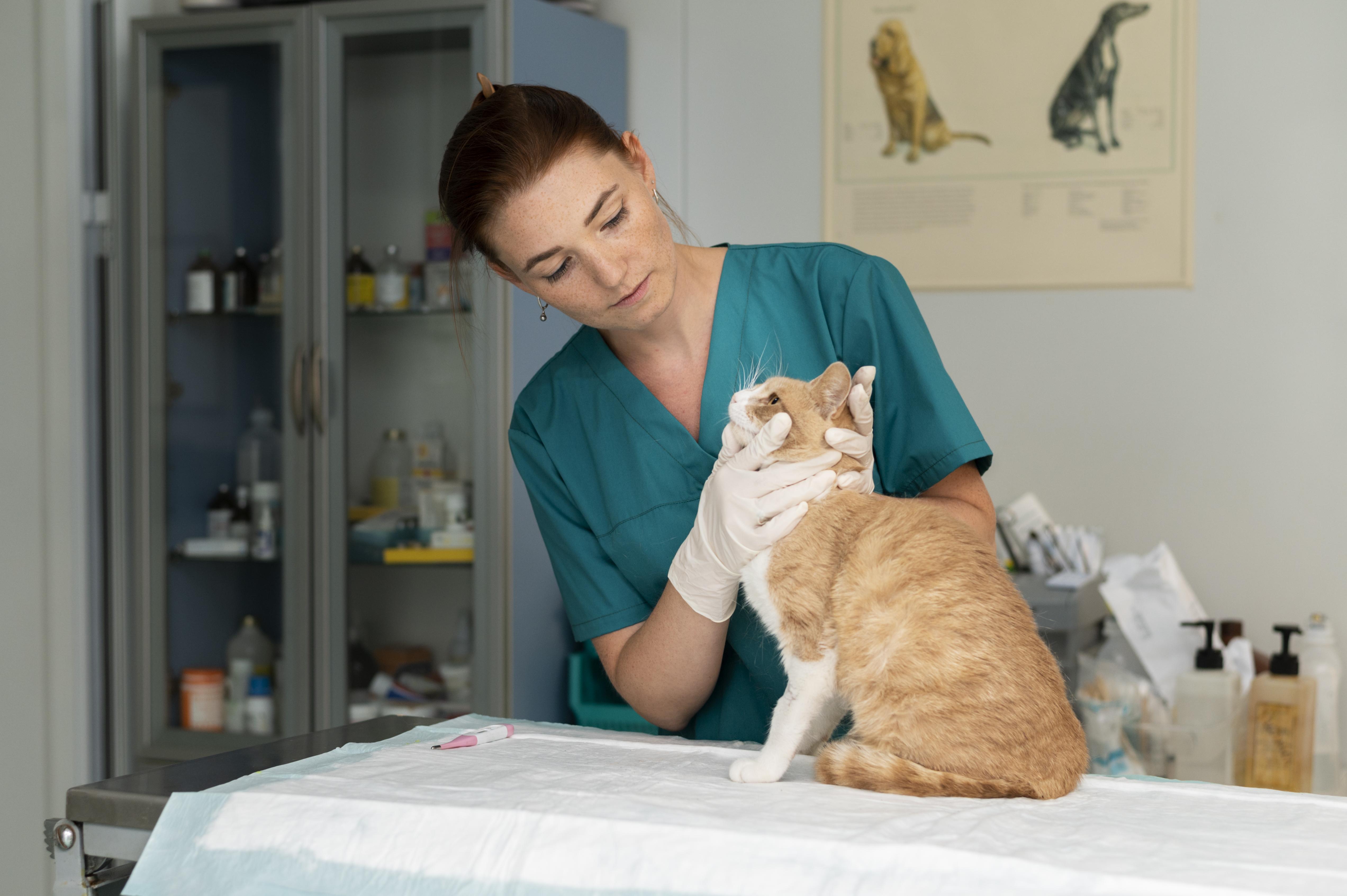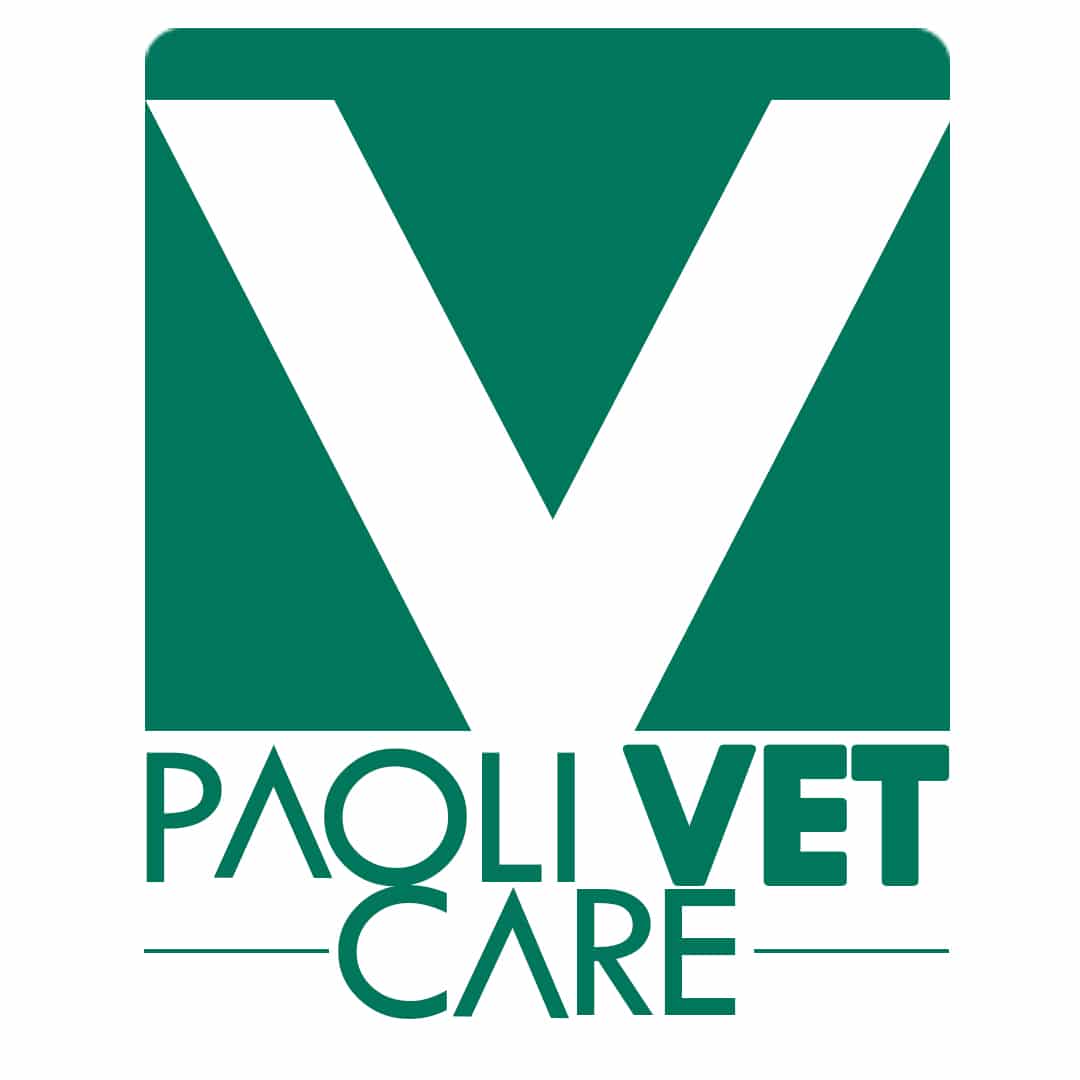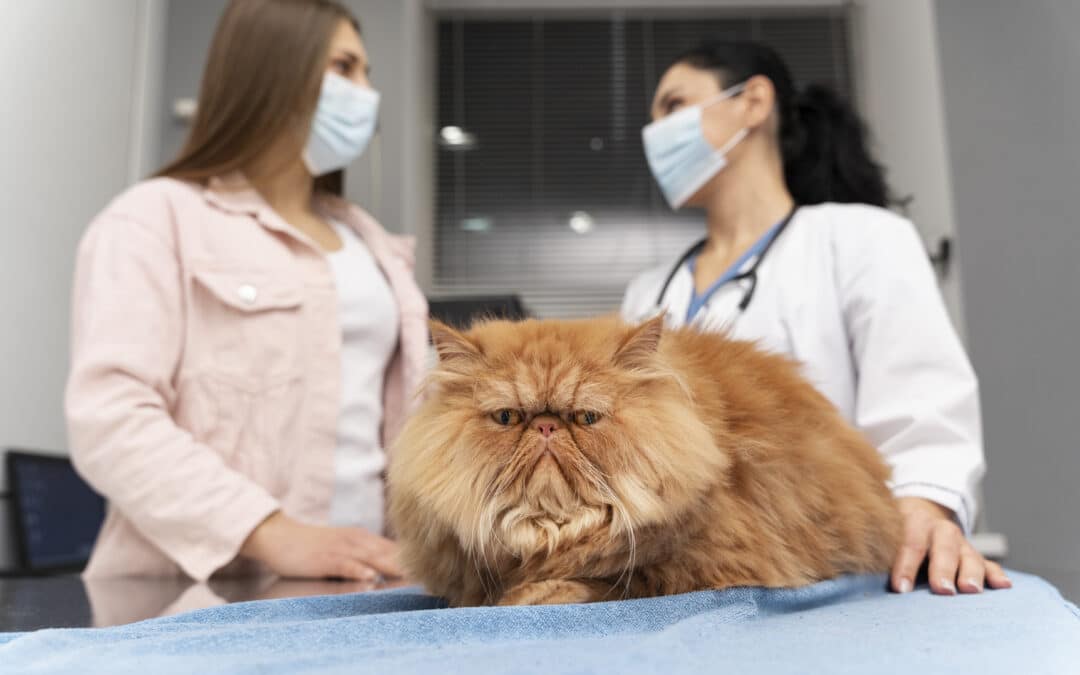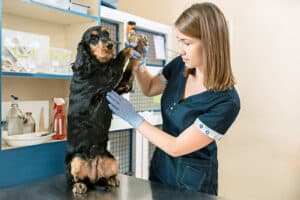Caring for your cat comes with its own share of costs, including care services and veterinary check-ups. While it can be tempting to put off a vet visit because your cat seems fine, remember that our furry friends have a habit of hiding things from us, including their declining health. To be the best pet owner you can be, ensure your pet’s health with regular visits and check-ups.
How much is a cat check-up? According to median data, the average cost of a routine vet visit for a cat is between $25-$186. While the actual cost depends on the type of pet, where you live, and what services the veterinarian provides, you can expect to spend around $100 or more for a visit. If it’s been a while, your cat might need blood tests, vaccinations, blood tests, or other treatments.
The cost of a vet visit is often the primary reason why pet owners will put off these important examinations. If you require veterinary financial aid or other assistance, please reach out to Paoli Vetcare today.
How Much Is a Vet Visit for a Cat?
Table of Contents
The Basic Vet Costs
If you own more than one cat, you might notice they have different health requirements. There are veterinary basics including vaccinations, wellness exams, dental cleaning, and spaying/neutering that are provided for the overall well-being of every cat.
Based on the visit and the needs of your particular cat, your veterinarian might recommend one or all of these basics.
Remember, health and wellness check-ups for cats are important. Don’t put off these important exams if you can help it!
Vaccinations: Every cat needs regular vaccinations. Your veterinarian will recommend core vaccinations for diseases such as rabies, feline leukemia, feline herpes, and more.
Many cat vaccinations, such as rabies, are legally required to own a cat and ensure they are not a danger to themselves or others. Expect to pay around $80-$160 for a kitten’s first year of vaccinations.
Wellness Exams: Cats require annual wellness exams just like dogs and people, and your veterinarian will recommend them to ensure their health is on track. The average wellness exam includes blood work and a dental check, and these items can vary in price depending on veterinary recommendation. An average Wellness Exam visit will cost between $100-$200 on average.
Dental Cleaning: While your cat’s Wellness Exam might include a dental check, your veterinarian will eventually recommend a full Dental Cleaning. Cats are very prone to dental diseases, including gingivitis and periodontal disease. It’s important to keep their teeth clean, which includes an annual dental cleaning.
Dental cleanings are pricier, so expect to pay around $350-$400 for this visit. If your cat needs oral surgery or a more detailed cleaning, it can be more expensive. Teeth removal costs anywhere between $50-$130 per tooth.
Spaying/Neutering: This is an important part of responsible pet ownership, and this goes double for outdoor cats. Many animal shelters will provide Spaying/Neutering services for free or as part of your adoption fees, and most neuter clinics charge around $50 for the service.
Considering the low cost and major benefits, it’s a good idea to have this procedure done as soon as possible.
Emergency Vet Costs for Cats
Cats are persnickety creatures, and there is only so much that planning and intention can do for our pets. It’s important to be aware that no matter how good of a pet owner you are, unforeseen health issues will still come up, and these emergencies have associated costs.
Diagnosis: When you suspect something is wrong with your kitten and bring it to the veterinarian, your vet will run a series of tests and exams to find the problem. These common diagnostics can include X-rays, Ultrasound, Blood Work, and Fecal Exams.
The average price of common cat diagnostics can be:
- X-rays: $150-$200. Recommended because this is a noninvasive way to examine your cat for internal injuries.
- Ultrasound: $300-$600. Ultrasounds are used to examine internal tissues and look for pregnancies.
- Blood Work: $80-$200. Your veterinarian might recommend blood work if they suspect your cat has a parasite, allergy, disease, or cancer.
- Fecal Exam: $25-$40. This is another way your veterinarian can determine if your cat has a parasite. A fecal exam can also tell them if your cat has any digestive or nourishment issues.
Treatments: After an issue is identified, your veterinarian will recommend necessary treatments. This can include medication, hospitalization, surgery, and more. Treatments also have associated costs.
- Short-Term Hospitalization: $600-$1,500. Your vet might require your cat to spend a few days in the clinic for extended treatment and hospitalization, especially after surgery.
- Long-Term Hospitalization: $1,500-$3,000. Serious issues might require longer stays, such as kidney failure or recovery.
- Wound Treatment: $800-$1,500. If your cat was wounded in a fight or injured by a vehicle, this treatment is necessary and includes the cost of cleaning, stitches, and anesthesia.
- Emergencies Surgeries: $1,500-$3,000. Extreme injuries require invasive surgeries, based on the severity of the wound. These emergency surgeries generally include the cost of hospitalization, anesthesia, and more.
Please note that prices in Paoli may vary significantly due to factors such as required tests, recommended procedures, and the animal’s weight, among others. This pricing list is intended only as a general guide to average costs during regular working hours and is based on median data from around the country.

How Often Should I Take My Cat to the Vet?
Depending on your cat’s stage of life, they require different veterinary visits. Kittens, adults, and senior cats receive different types of care and frequency of care, and it’s important to speak with your veterinarian about your cat’s needs as they age.
Kittens: Newborns, kittens, and young cats require an enormous amount of attention and care. Your veterinarian will be your primary resource to ensure your kitten is feeding appropriately, growing properly, and in good health.
When adopting a kitten, you should schedule their first exam for their first week home with you. Typically kittens aren’t adopted until they’re at least 8 weeks old, and unless you’re experienced with kitten neonatal care, you should not attempt to adopt a kitten that’s under 6 weeks old.
Adult Cats: The cat adulthood stage is between ages 1-6, and mature cats are around 7-10. During this adulthood stage, your cat should be receiving annual wellness exams from your trusted veterinarian.
Wellness appointments help your veterinarian catch diseases and medical conditions early, ensure your cat receives preventative care, and stave off any illnesses before they become serious.
Senior Cats: Any cat age 10 or older is considered a senior. At this age, you should take your cat for bi-annual veterinary visits—Senior cats require a checkup every six months.
Senior cats need more regular visits because they develop chronic health conditions as they age. Earlier detection leads to prevention and intervention, improving their quality of life.
Regular Veterinary Visits
We cannot understate the value of regular veterinary visits! We love your cats and kittens and want all your pets to be in their best health possible so they can live fully, happy lives.
Routine check-ups are the best way to ensure your cat’s well-being. If you need help budgeting for check-ups or require veterinary financial aid, please reach out to Paoli Vetcare and we will do what we can to help you and your pet.








